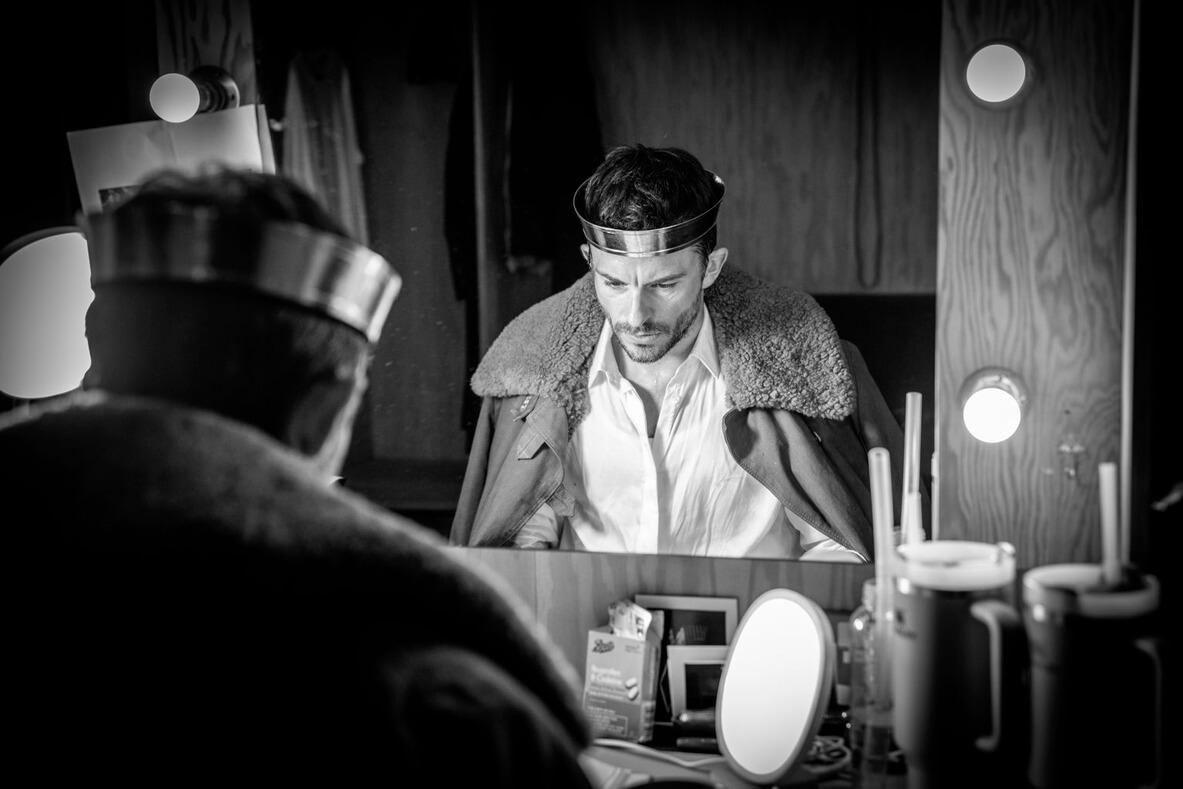Don’t expect a traditional interpretation of the much loved tale, in fact if you’re a fan of the dark and gothic twisted story in its original Victorian setting you may be disappointed. But it was never written as a period piece of course and its author, Lewis Carol, intended it to feel current, setting it in the times in which he and his young readers lived.
The creative team behind WONDER.LAND, the director Rufus Norris, Choreographer, Javier De Frutos, writer Moira Buffini and composer Damon Albarn, formally of the popular 1990s band Blur, have imagined a current day equivalent and this version is set today, in a bleak London housing estate.
Its central character, Aly, is alienated from her squabbling parents, horrible class mate and her ferocious head mistress. Her escape is not down a rabbit hole but into the world of cyber gaming. She creates an avatar of her ideal self and with it explores a computer game on her mobile phone. Her adventures in the game and the other players she meets establishes it as an idealised alternative reality in which players can exist more comfortably then in the challenging real world. Unfortunately the head mistress confiscates Aly’s phone and becomes a malicious presence in the game, reminiscent of the psychopathic Queen of Hearts who terrorises the original book with her ceaseless demands for be-headings.
The huge set is overpoweringly black, grey and rain lashed, the scenes in the game are created with spectacular projections of computer generated images in bright colours, including a gorgeous, floating Cheshire Cat head which tantalises you with how magically a straighter interpretation could have represented the book.
There’s little magic in this version which is never far away from the next dollop of teen angst and explains everything rationally as the consequences of gaming on your smart phone. The cast struggle to make individual impressions amidst the tide of grey misery and down beat sentiment.
Its tough being a teenager, I seem to remember, and this production perfectly captures the way troubled young people relate to the world. No wonder the lone school party was so excited, when I saw it.
Unfortunately if you’re not a troubled young person it’s all rather alienating. The songs are repetitive and boring defying you to like them – in fact, rather like a grouchy adolescent.

 Older audiences and critics were rather underwhelmed by this massive new show, inspired by the classic children’s book ALICE IN WONDERLAND, when it premièred in Manchester earlier this year. It has now transferred to London's Oliver Theatre and if the enthusiasm of the younger audience members at the late preview I attended is anything to go by, it could prove a massive hit if it can reach the urban teenage audience it’s aimed at.
Older audiences and critics were rather underwhelmed by this massive new show, inspired by the classic children’s book ALICE IN WONDERLAND, when it premièred in Manchester earlier this year. It has now transferred to London's Oliver Theatre and if the enthusiasm of the younger audience members at the late preview I attended is anything to go by, it could prove a massive hit if it can reach the urban teenage audience it’s aimed at.


 FUNNY GIRL is a Broadway musical written in the early 1960s by the same composer as GYPSY, Julie Styne.
FUNNY GIRL is a Broadway musical written in the early 1960s by the same composer as GYPSY, Julie Styne.